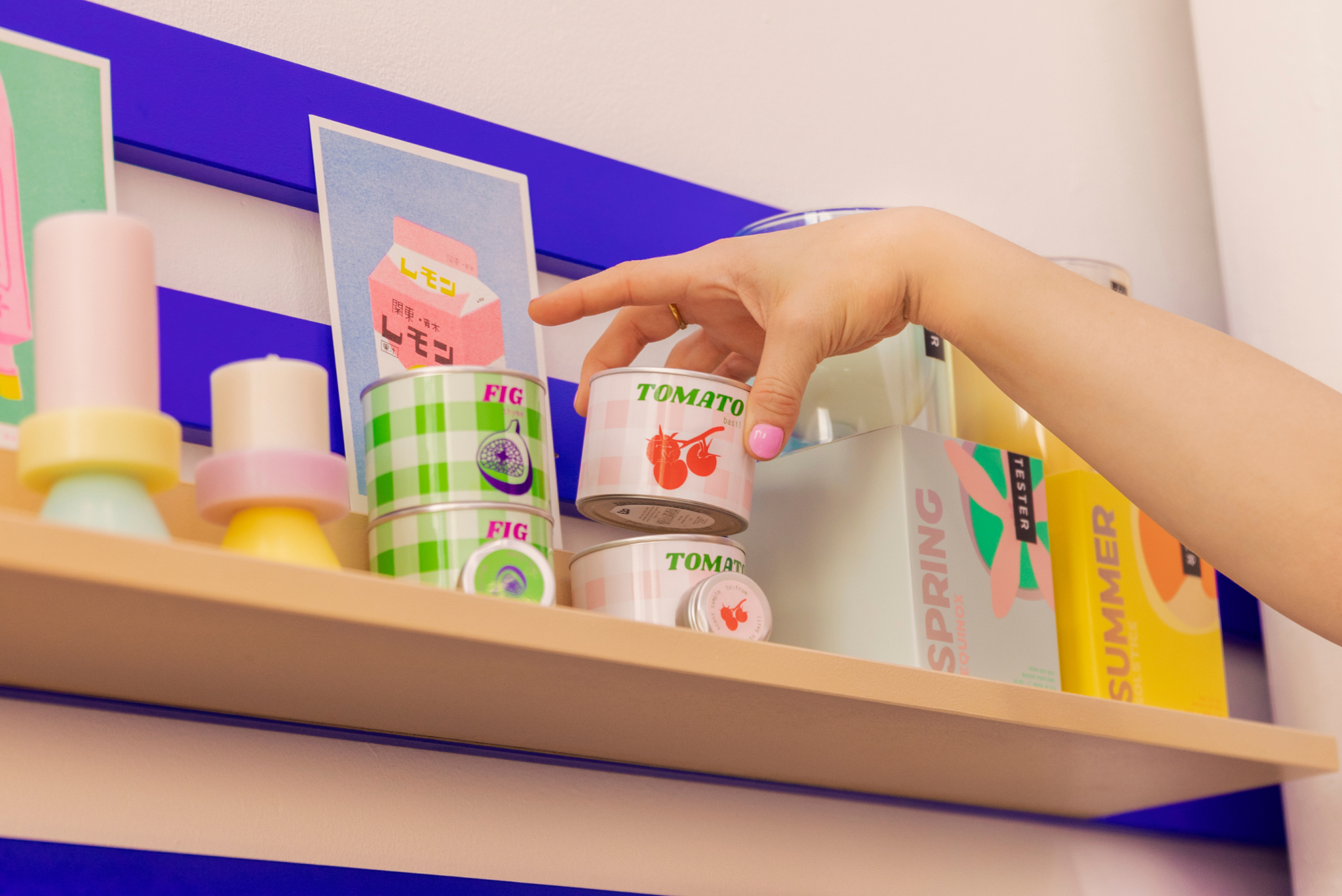

Products can have a long journey from the manufacturer to the end consumer, and wholesalers are a major part of the equation. Wholesalers play a crucial role in the supply chain, distributing goods from suppliers and making them accessible to retailers.
If you’re a seller, you can add wholesale to the broader mix of sales channels you use in your business. Some businesses operate exclusively as wholesalers, selling their products to retailers, and others sell wholesale alongside their direct-to-consumer sales. If you’re interested in leveraging wholesale in your brand strategy, this guide is a starting point for understanding wholesale.
What is wholesale?
Wholesale is a business model in which one business sells a large quantity of products to other businesses. A wholesaler makes products in bulk or buys them from a manufacturer and then sells them to individual retailers who then sell them to shoppers. The products are purchased at a price below the retail value of the goods, then businesses mark up the price on those products and sell them to individual consumers either in person or online.
What are the types of wholesalers?
There are different types of wholesalers that serve different functions and industries. Depending on which industry you wish to break into, you could fall into any of these categories.
Merchant wholesaler: This group produces their own wholesale products instead of purchasing in bulk from a manufacturer. Since they own their production, merchant wholesalers sometimes enjoy an advantage as retailers might seek them out for better pricing or more creative products. Brands who sell on Faire fall into this category.
General wholesaler: General wholesaler businesses buy items in bulk and resell them downstream. General wholesalers are more likely to work across different industries and have a wide range of product offerings.
Specialty wholesaler: These wholesalers specialize in specific industries. They’re focused on one category, so they’re more likely to have expert knowledge of industry trends. Some of these categories may include artisan furniture and grocery. You’re more likely to encounter specialty wholesalers in fields that require licensing such as pharmaceuticals or medical equipment.
What are the benefits of selling wholesale?
There are several reasons why selling wholesale might appeal to businesses. Remember these advantages when considering wholesale for your brand.
Sell more products
As a wholesaler, you’ll be selling cases of products instead of individual ones. This enables you to sell more of your products, increasing your potential for profit and business growth. Instead of selling a few products at a time to consumers, you can sell hundreds of dollars’ worth of items in a single wholesale order.
Build a reputation
When you’re a wholesaler dealing with large volumes of products in a specific category, you naturally will develop an expertise for the best materials and players in the space. For example, if you’re a wholesaler who’s focused on soy candles, you’ll gain knowledge over time on industry standards for items like fragrance oils and waxes. You can leverage this knowledge to foster trust and credibility with retailers.
Create a network
Nurture relationships with the right retailers, and you’ll be able to expand your business more easily and break into new territories. Wholesalers work very closely with retailers to get quality products delivered on time that meet shopper expectations. You have the opportunity to find collaborative retailers and identify opportunities for diversification into new areas.
How does someone become a wholesaler?
Entering the wholesale industry can be a great move for your business, but it requires careful forethought. There’s plenty of planning, research, and preparation involved before you can launch a successful wholesale business. Here are a few steps to help you get organized.
1. Decide if your products are a match for wholesale
This is a big one. The wholesale category is massive, and you can find wholesale options for everything from candles to beverages to clothing to skincare. You’ll need to research what items have a strong enough demand to justify your wholesale business. Be sure of your product’s value and relevance before deciding to turn that product into a wholesale offering. A thoughtful market analysis can reveal whether there’s enough interest in your organic baby apparel before you make costly investments.
2. Craft a business plan specifically for wholesale
You’ll need to have a strong grasp of your finances and your business model before launching a wholesale brand. Even if you already have a direct-to-consumer brand, you should still create a separate business plan for wholesale. This is especially important if you’re bootstrapping your business, as a clear business plan will help you prioritize the right things at the right time. This business plan should include information about your market research, your pricing strategy, your organizational structure, and any financial plans.
3. Get all necessary licenses and permits
Depending on where you’re operating and how established your business is already, you may need to complete paperwork for a wholesale license, business permit, employer identification number, sales tax ID, and other things. It’s a good idea to consult a lawyer or the chamber of commerce in your area to ensure that you’re executing all business requirements correctly.
4. Find a warehouse space
Storage capability is important for a wholesaler as you may be fulfilling large orders. If you were selling direct-to-consumer previously, you might have stored products in your studio or in your home. When you start to sell wholesale, consider if you’ll need to rent extra space for your wholesale business. Pay attention to the size of the warehouse, the monthly costs, and how you’ll partner with the warehouse staff to fulfill orders. You may want to wait until your wholesale business picks up before determining what type of storage space you’ll need.
5. Develop a wholesale marketing plan
You’ve set up everything you need, but now you have to let retailers know you exist. This would be a good time to create an e-commerce site or create a profile on a marketplace like Faire to connect with potential retailers. The advantage of leaning into a marketplace presence is that you gain exposure to countless retailers all in one place.
What wholesale services exist?
As mentioned, wholesale platforms can make breaking into the wholesale business more streamlined. Hundreds of thousands of independent retailers buy wholesale from over 100,000 brands on Faire. Independent retailers gravitate toward Faire because the search function makes it easy to discover new products to love. Retailers also know they can take advantage of benefits that eliminate the risk of wholesale purchases, such as the 60-day payment terms and free returns on opening orders.
Faire offers wholesale brands the ability to easily manage orders and shipping all in one place. From the Faire portal, wholesalers can accept, edit, and track orders. Wholesale sellers also have the option to leverage Ship with Faire to take shipping logistics off their plate, and they don’t have to worry about shipping costs as retailers pay for delivery. When it comes to building and maintaining customer relationships, the Faire portal has tools to help you with email marketing and customer segmentation. Not to mention, Faire guarantees the payment on every order.
Popular wholesale product categories
On Faire, you can browse wholesale products of all kinds, from specialty candy to novelty magnets. Get some inspiration by exploring some of our biggest categories.
Selling wholesale can be a profitable business if you have the right tools and insights. Launching a wholesale business can look very different from selling retail, but it offers unique advantages and opportunities for those willing to make the leap. Develop relationships and deliver value, and your wholesale business can stand out from the pack.




